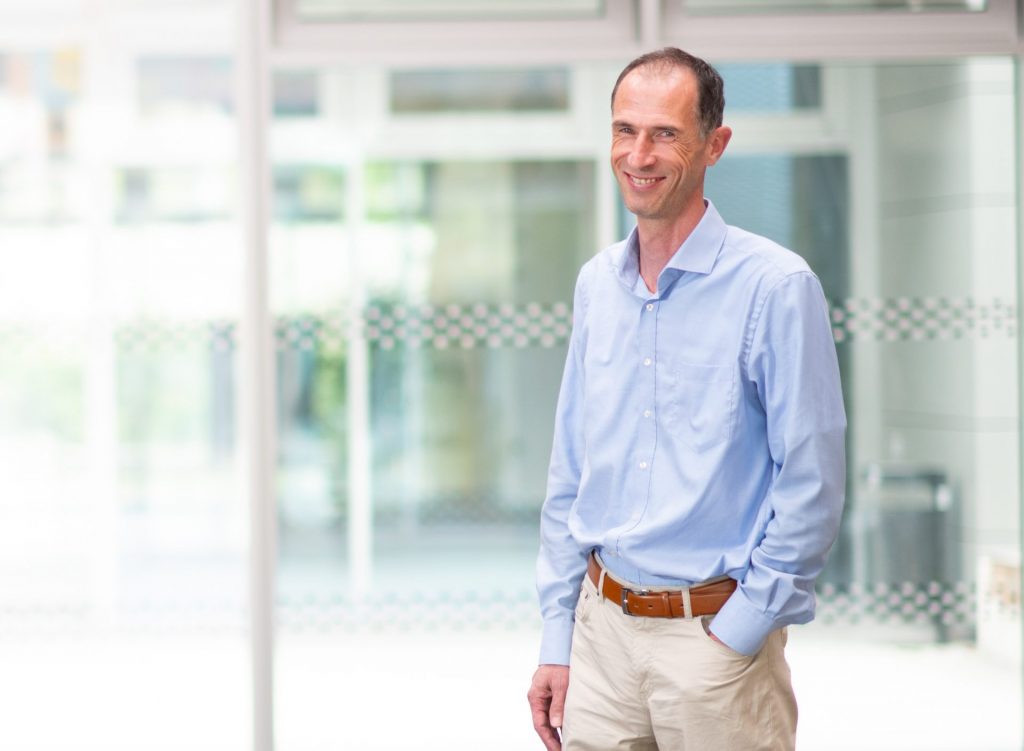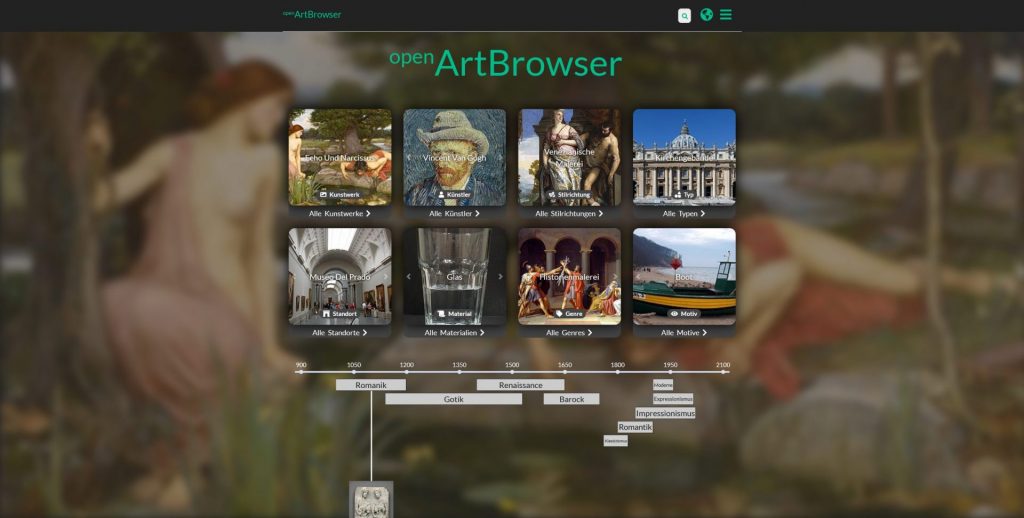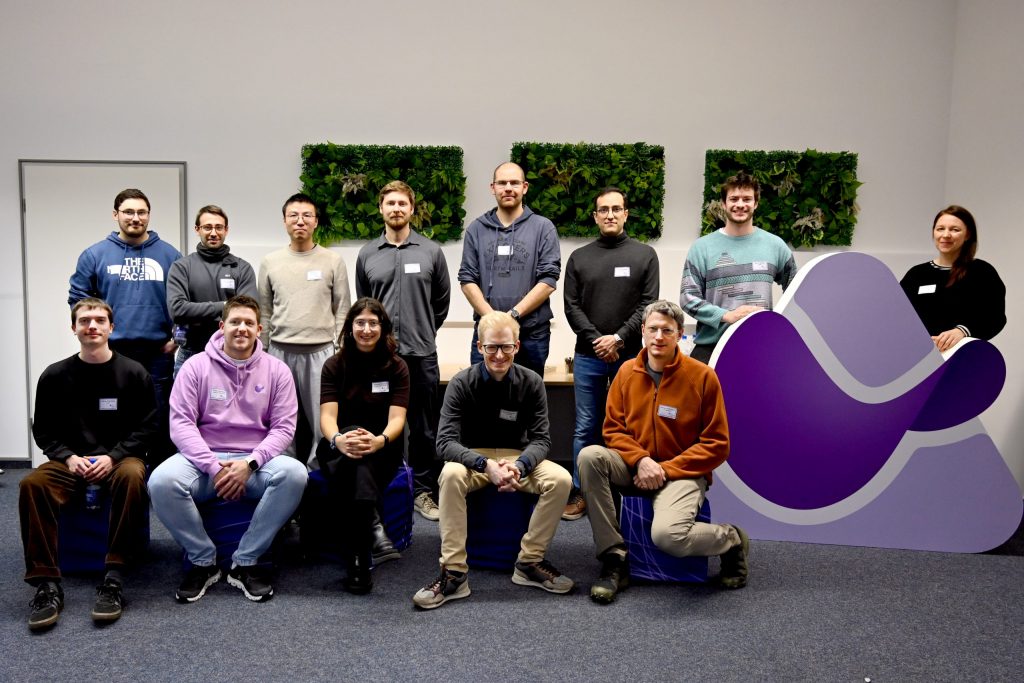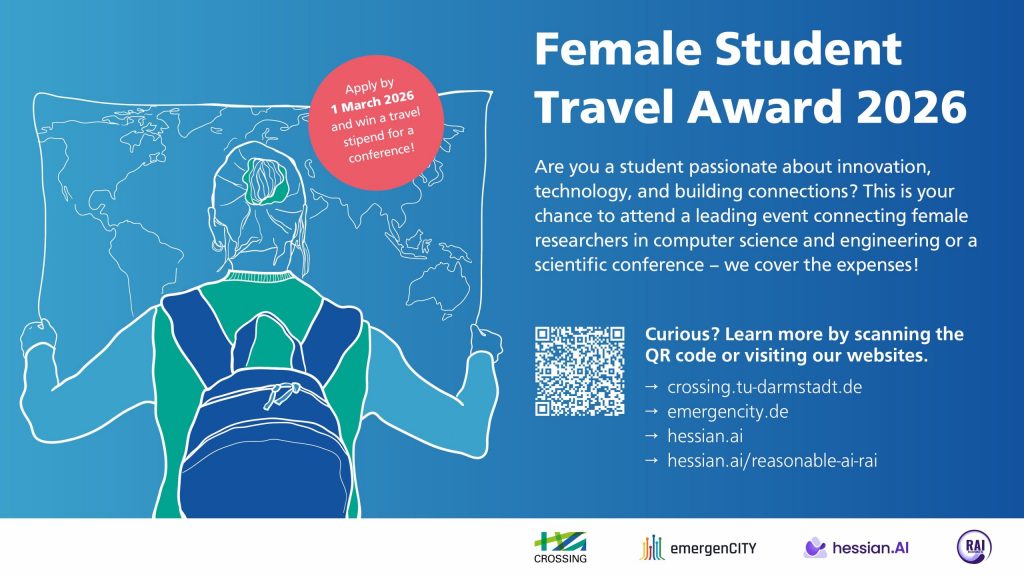
AI systems in tune with society
About Prof. Dr. Bernhard Humm
Prof. Dr. Bernhard Humm researches and teaches at the Department of Computer Science at Darmstadt University of Applied Sciences. He studied at the University of Kaiserslautern and earned his doctorate at the University of Wollongong in Australia.
After working in industry, Humm was appointed professor at Darmstadt University of Applied Sciences, where he still teaches and researches software development, architecture and artificial intelligence.

With holistic research and development to better AI systems
Industry, culture, economy: Humm speaks of a mix of sectors when he describes his application-oriented research, for which he was awarded the Wissenschaftspreis of Darmstadt University of Applied Sciences in 2019 and the Hessischer Forschungspreis in 2014.
The computer scientist develops software applications for various areas of society, such as an AI application for doctors treating cancer patients, a system that identifies faults early on in smart factories, or a platform for art education in the digital space.

For Humm, the benefit for users of AI systems plays the central role: “It is not important to use the most modern technology, but to provide real benefits.” A particular concern for Humm is to keep an eye on the effects of AI systems on society.
Humm therefore teaches and conducts interdisciplinary research, for example with scientists from the fields of philosophy, social sciences and law. He wants to think and develop AI systems holistically, understand them better, explain them and – as a result – use them more effectively.
Humm sees various technical and social dimensions in AI systems, which he would like to reconcile. In 2021, he and an interdisciplinary team published a book on technology assessment and artificial intelligence that offers plenty of food for thought in this regard: “The more Data Science enters research, the more the search for causality is replaced by the search for correlations. This is changing the way science is done.”
The focus is always on people
In his research and teaching on AI systems, the computer scientist always sensitizes people to their ability to act. AI systems can reveal correlations that cannot be recognized independently by specialists. This requires transparent explanations of how recommendations for action are arrived at.
Humm develops software that facilitates the diagnosis of illnesses in hospitals, for example, or accompanies patients in psychotherapies. For Humm, it is clear that AI systems can support therapists, doctors and air traffic controllers in their decision-making, but they cannot and must not replace human expertise and final judgment.
Application-oriented research is so demanding because many dimensions have to be served simultaneously: high benefit for users and society, economic feasibility, technological quality, and scientific depth.


